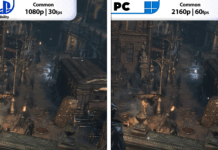Good morning, and welcome to the Indy Gaming newsletter, a weekly look at gaming matters nationally and internationally and how the events tie back to Nevada.
If a colleague or associate emailed this newsletter to you, please click here to sign up and receive your own copy of Indy Gaming in your inbox. – Howard Stutz
Congressional representatives and the American Gaming Association asked the Treasury Department in 2019 to increase the tax reporting threshold on slot machine jackpots from $1,200 to $5,000.
Their argument was that the $1,200 level established in 1977 was out of date.
Treasury Department officials agreed to study the request and issue a report on their findings.
Three years later, the gaming industry is still waiting for the decision.
On Thursday, the House Congressional Gaming Caucus, with the backing of the AGA, filed bipartisan legislation to have Congress authorize the changes. The Shifting Limits on Thresholds (SLOT) Act would require the Treasury Department to set the higher ceiling.
“Treasury dragged their feet, and this has become a burden on the industry,” Rep. Dina Titus (D-NV), said in an interview with The Nevada Independent.
Titus, one of the co-chairs of the gaming caucus, has long fought for the changes to be made in the reporting threshold.
“If we wait any longer, because of inflation, we might have to raise the threshold to $6,000,” Titus said.
When the threshold was set 45 years ago, Nevada was the only state with legalized commercial casinos. That same year, the New Jersey Casino Control Act was signed into law, setting the path for Atlantic City’s casino industry. Since then, commercial casinos have opened in 34 states and slot machine jackpots became more lucrative.
According to the AGA, slot machine revenues accounted for $32.5 billion of the record-setting $53 billion in gaming revenues produced by the nation’s commercial casinos in 2021.
A $1,200 jackpot is commonplace nowadays on slot floors.
Proponents of the change said a $1,200 jackpot triggers a shutdown of the slot machine until the IRS paperwork requirements are fulfilled.
“We’re the one industry where you actually have to take a revenue-generating asset out of production in order to comply with our tax reporting obligations,” AGA Senior Vice President of Government Relations Chris Cylke said in an interview.
The challenge facing lawmakers in passing the legislation is timing. It’s an election year and Congress has been deadlocked by partisan bickering on the issues such as the president’s legislative agenda.
“While it makes logical sense that the threshold on slot winnings should be increased, this is going to face a low priority in today’s Congress,” said Global Market Advisors partner Brendan Bussmann, who is also the firm’s director of government affairs.
Cylke agreed the timing presents some difficulties but noted that many tax bills come up at the last minute, adding to the likelihood that the legislation re-arises during the lame-duck session after the November election.
Titus suggested the legislation could be attached to an omnibus tax bill at the end of the year.
She also said the backing of Republican members of the gaming caucus, including co-chairman Rep. Guy Reschenthaler (R-PA), and Rep. Mark Amodei, (R-NV), will help in the effort. Reschenthaler represents a district south of Pittsburgh in a state that had more than $4.8 billion in gaming revenue in 2021, second only to Nevada’s $13.4 billion.
“Increasing the threshold will eliminate this onerous red tape, ensuring the gaming industry can continue to support good-paying jobs and foster economic growth in southwestern Pennsylvania and across the country,” Reschenthaler said in a statement.
The other two co-signers on the legislation were Rep. Steven Horsford (D-NV), and Rep. Anthony Brown (D-MD), whose district includes MGM National Harbor, the largest gaming revenue producer of Maryland’s six casinos.
Titus, whose Southern Nevada district includes the Las Vegas Strip, said she and gaming industry leaders believe raising the threshold will continue to guarantee the appropriate taxes continue to be collected on slot winnings, but “would reduce paperwork and ensure this is accomplished more efficiently.”
Three years ago, the gaming industry and their representatives had what they viewed were constructive conversations with Treasury officials about increasing the threshold.
Meanwhile, Cylke said the AGA “laid some good groundwork in Congress,” including having discussions with members of the House Ways and Means Committee.
“They’re aware of it,” he said. “We’ll just have to continue to work throughout this year to position it as something that will be under consideration when and if some of those packages start to move.”
In 2015, Titus and other gaming industry leaders beat back an effort by the Internal Revenue Service to lower the reporting threshold to $600.
“I’m going to say I’m optimistic because the threshold is not only a burden on the industry, it’s a burden on the IRS,” Titus said. “You will still have regulation and reporting, but it just won’t be required at that low level.”
Analysts give high marks to Reno following Century Casinos announcement
Two gaming analysts offered up bullish praise of Century Casinos’ announced purchase of the Nugget Casino Resort in Sparks, citing Northern Nevada’s economic climate.
B Riley Securities gaming analyst David Bain told investors last week that revenues and cash flow from the nearly 1,400-room resort – one of the largest gaming properties in Northern Nevada – could nearly double the Colorado casino operator’s stock value.
Meanwhile, Stifel Financial gaming analyst Jeffery Stantial on Monday said a favorable view of Reno’s business climate has boosted investor interest in Century. The Colorado Springs-based company operates two casinos in Colorado, two casinos in Missouri and one casino in West Virginia, as well as four gaming properties in Alberta, Canada.
Century is attempting to sell its ownership stake in several casinos in Poland.
“We believe management remains committed to repositioning the company as a North American regional gaming pure-play,” Stantial wrote. He added that by increasing its U.S. exposure, Century will become “more approachable for a wider investor base.”
Century officials said the company had been exploring ways to enter the Northern Nevada gaming market when it announced the transaction on Feb. 23. Century will pay $100 million for the operations of the Nugget and $95 million for 50 percent ownership of the real estate. Century has a five-year option to purchase the remaining 50 percent of the Nugget’s site off Interstate 80. The resort is located just three miles from Reno-Tahoe International Airport.
Stantial gave high marks to the Reno business environment, which is significantly more economically diverse than Southern Nevada. He also cited Nevada’s 6.75 percent gaming tax rate, the lowest in the nation.
In 2021, Washoe County reported more than $1 billion in gaming revenue. Reno casinos accounted for $728.4 million of the total with Sparks casinos contributing nearly $167 million.
In its purchase announcement, Century noted Northern Nevada had attracted several technology and manufacturing companies, including Google, Tesla, Switch, Amazon and Apple, to move into the market.
“We share similarly positive views on the Reno market,” Stantial said.
Bain told investors the acquisition was a “stock re-rating catalyst,” predicting the casino’s contribution to Century’s overall cash flow would lead to a more than 300 percent increase by 2024.
He also said the casino company is seeking other acquisitions in the U.S.
“Clearly, Century is already reloaded for more and we continue to believe there is more to come in the intermediate-term,” Bain wrote in a March 1 research note. “Century could emerge as a very big name, particularly over time.”
The Nugget is owned by Las Vegas-based Marnell Gaming, which acquired the property in 2016 for an undisclosed price. The Nugget was developed by Northern Nevada gaming pioneer John Ascuaga, who died in June at age 96.
Diller’s IAC/Interactive says it’s a ‘long-term’ investor in MGM Resorts
Nevada gaming regulators have tentatively approved media mogul Barry Diller and his IAC/Interactive Corp. as the 14 percent owner of MGM Resorts International.
Diller, 80, founded Fox Broadcasting Co. and USA Broadcasting. He is currently No. 206 on the Forbes 400 with a net worth of $4.6 billion. He founded IAC in 1995 and is also chairman of online travel giant Expedia, which acquired its holding company, Liberty Expedia, in a $2.6 billion deal in 2019. Among IAC’s more than 150 brands are Angie’s List and The Daily Beast.
Diller, along with IAC CEO Joey Levin, participated in the Gaming Control Board hearing in downtown Las Vegas on March 2 virtually from a conference room at MGM Resorts’ corporate offices at Bellagio. A few hours later, MGM’s board – Diller and Levin are both members – approved a new $2 billion stock repurchase program.
On Tuesday, the Wall Street Journal reported Diller and two others, including entertainment mogul David Geffen, are being investigated by federal prosecutors over acquisitions they made in Activision Blizzard Inc. in January, days before the video game maker agreed to be acquired by Microsoft Corp.
IAC spent $1 billion to acquire its initial 12 percent stake in MGM Resorts in August 2020. The figure has grown larger, as has Diller’s influence.
Levin, who has been Diller’s right-hand for almost two decades, said IAC’s commitment to MGM Resorts is long-term.
“It checked all the boxes in terms of business opportunities,” Levin told the control board.
When Diller acquired the stake in MGM Resorts, he told IAC shareholders about the company’s potential for online gaming. At the time, BetMGM – the 50-50 sports betting and online gaming joint venture between MGM and Entain plc – was in the early stages. Diller said MGM’s revenue from online gaming was “so small that it rounds down to zero.”
Today, BetMGM ranks among the top four online sports betting operators in the U.S.
“We believe MGM presented a ‘once in a decade’ opportunity for IAC to own a meaningful piece of a preeminent brand in a large category with great potential to move online,” Diller wrote in an August 2020 shareholder letter that accompanied the stock acquisition announcement.
Levin told the control board MGM Resorts offered a “transformational omnichannel experience” and was the first IAC stock acquisition done to help build and grow another company.
The Nevada Gaming Commission will make a final decision on the control board’s recommendation for approval on March 17.
Ukraine conflict a topic on several gaming supplier earnings calls
New International Game Technology CEO Vincent Sadusky brought up Russia’s ongoing attack on Ukraine during the company’s March 1 fourth-quarter conference call. Sadusky took over as CEO last month after former CEO Marc Sala became chairman.
“It is hard to know if we will experience any impact from the conflict between Russia and Ukraine,” Sadusky said during his prepared remarks. “We have minimal direct exposure to those countries. But the repercussions throughout Europe and the rest of the world are difficult to assess at this time.”
According to CDC Gaming Reports, Ukraine, which legalized gaming in 2020, is home to several satellite offices for North American and European technology companies and gaming equipment suppliers.
One of the first operators to be licensed in the country was Kyiv-founded Parimatch, a European sports betting business.
Rival gaming equipment provider Scientific Games was also questioned about business disruption brought on by the Ukraine situation during its quarterly earnings call that same day.
CFO Connie James called the assault on Ukraine “tragic,” and the company’s “hearts go out” to the country.
“We’ve got a handful of contractors from a financial perspective, (but) don’t have any material impacts,” James said. “But most importantly for us, it’s just making sure that those that we partner closely with are safe, and we will continue to make sure we can do all we can to put them in the best scenario possible.”
Vegas could conceivably add nearly 8,000 rooms in three years
Las Vegas could see close to 7,600 new hotel rooms by 2024 and beyond, according to a report by the Las Vegas Convention and Visitors Authority.
Last year, the resort corridor added 5,179 hotel rooms, dominated by the 3,500 rooms at the $4.3 billion Resorts World Las Vegas. Another 1,500 rooms were returned to the market when the off-Strip Virgin Hotels Las Vegas – a rebranding of Hard Rock Las Vegas – reopened after a year-long shut down for the construction project.
The LVCVA said Las Vegas had a total inventory of 150,387 hotel rooms and suites at the end of 2021.
According to the agency’s annual Construction Bulletin, only 1,087 hotel rooms are expected to be added to the Las Vegas market in 2022, led by the reopening of the Palms Casino Resort later this month. The 766-room property closed in March 2020 because of the pandemic but never reopened. The Palms was sold by Red Rock Resorts for $650 million to Southern California’s San Manuel Indian Tribe.
Three smaller hotel projects are scheduled to be completed in 2022, including a 127-room hotel at Railroad Pass in Henderson.
However, the LVCVA expects to see an additional 4,254 rooms added in Las Vegas in 2023, led by the completion of the 3,780-room Fontainebleau Las Vegas on the Strip, which restarted construction last fall after being shuttered for more than 12 years.
Also Red Rock Resorts said it would open the initial phase of the $750 million Durango Station in the southwest area near the 215 Beltway. The project is expected to have 200 rooms. Red Rock Resorts still owns three casino hotels – Texas Station, Fiesta Rancho and Fiesta Henderson – that have not reopened in almost two years following the end of the state’s 78-day gaming shutdown due to COVID-19.
Only one other major hotel-casino is listed as a future project post-2024: the 2,500-room All Net Resort on the north end of the Strip, which includes a sports arena. Neither definitive approval nor a completion date has been announced.
Other items of interest:
Accel Entertainment’s $140 million acquisition of Nevada slot machine route operator Century Gaming is expected to be completed in 90 to 120 days. CEO Andrew Rubenstein told a J.P. Morgan-hosted investor conference on Monday that Illinois-based Accel is still awaiting Nevada and Montana regulatory approval.
The deal was announced a year ago. Accel, the largest slot machine route operator in Illinois, is acquiring Century to give it a foothold in two of the largest slot route markets in the U.S. As part of the transaction, Century CEO Steve Arntzen and his team will remain in place and oversee the company’s efforts for Accel.
Century is Nevada’s second-largest slot route operator with nearly 400 locations and more than 2,400 games. The state’s leading slot route operator, Las Vegas-based Golden Entertainment, has more than four times the number of games and nearly double the number of locations.
The companies’ ranks are flipped in Montana, where Century controls roughly 40 percent of the state’s slot machine route business.
Apollo Global Management is looking to launch a sports betting operation through its ownership of Yahoo Sports. According to CNBC, Apollo is seeking a partnership with a sports betting company. Australia-based PointsBet was mentioned as a potential pairing.
The New York City-based private equity firm acquired Yahoo last year. Previously, Yahoo was acquired by Verizon in 2017 and merged it with AOL.
The potential move comes a little more than a week after Apollo took over the operations of The Venetian Las Vegas, Palazzo and Venetian Expo as part of a $6.25 billion sale by Las Vegas Sands Corp.
Las Vegas Sands provided Apollo $1.2 billion of seller financing with the private equity firm putting up $1.05 billion in cash and financing. Real estate investment trust VICI Properties paid $4 billion for the 63 acres and an additional 19 adjacent acres off Koval Drive where the $1.8 billion MSG Sphere entertainment venue is under construction.
International Game Technology signed a new contract with La Loteria Nacional, Mexico’s national lottery, to provide lottery solutions and sports betting services until September 2024. The financial terms of the agreement were not announced.
As part of the new contract, IGT will provide a new instant ticket central system, lottery terminals, a communications network and ongoing marketing services such as research and game planning.
In addition to the lottery services, IGT will provide La Loteria Nacional with a sports betting platform that provides odds-making and risk management services. The lottery has 8,400 terminals across Mexico.
«IGT’s successful partnership with La Loteria Nacional spans three decades, and within that time, we have generated positive sales results to benefit many good causes throughout the country,” IGT COO for Global Lottery Jay Gendron said in a statement.
Macau’s government extended the gaming concessions for six casino operators in the Chinese gambling enclave by six months, an action last week that removed a significant financial overhang on the market.
The current 20-year concessions (Macau’s terminology for a gaming license) – including those controlled by Las Vegas Sands, Wynn Resorts and MGM Resorts International – were set to expire on June 26. Confusion around Macau’s concession renewal process was cleared up in January when the government allowed the six gaming concessions to move ahead with 10-year licenses and the potential of three-year extensions, kicking the next relicensing to 2035.
The formal applications by the six operators are still due, but the extension moved a looming deadline for the operators who have not yet submitted their formal applications.
Macau casinos produced just $10.8 billion in gaming revenue in 2021. The figure was a 43.7 percent increase over 2020, which was disrupted by the pandemic, but was still more than 70 percent below 2019 when casinos in the region produced $36.6 billion.
Macau, once considered the world’s largest gaming market in terms of revenue, recorded an all-time record year of $45 billion in 2013.












